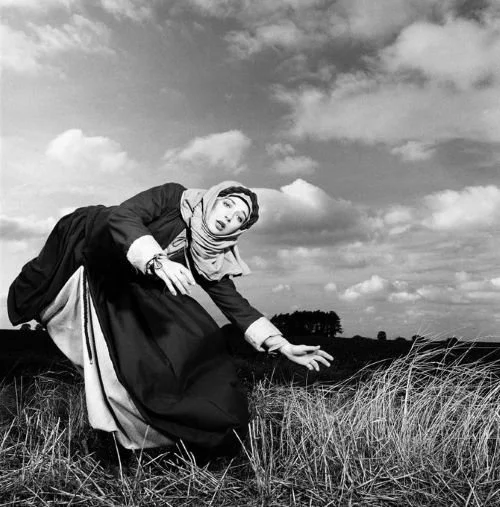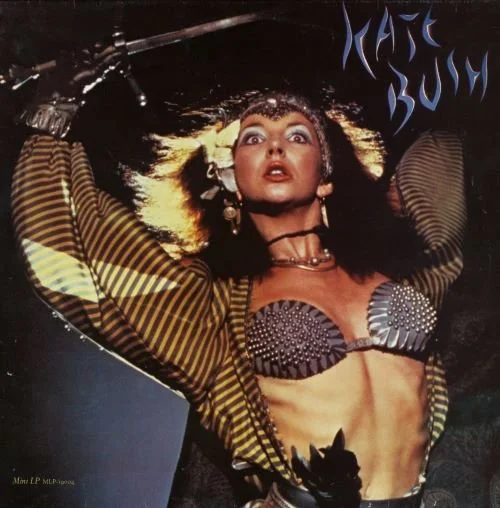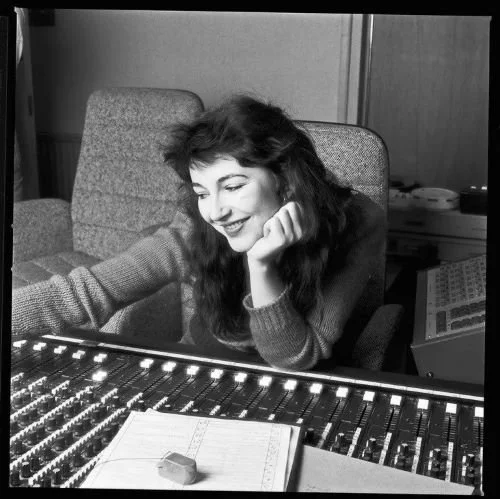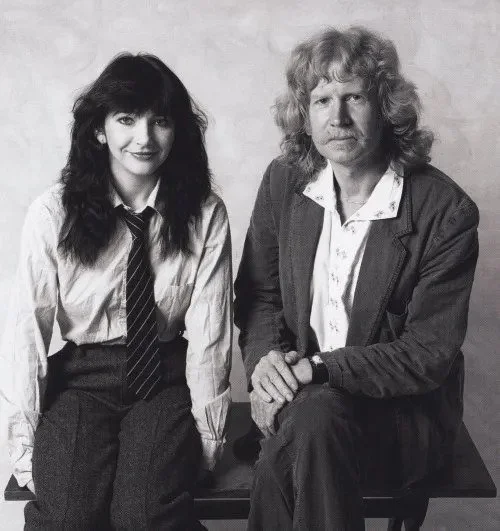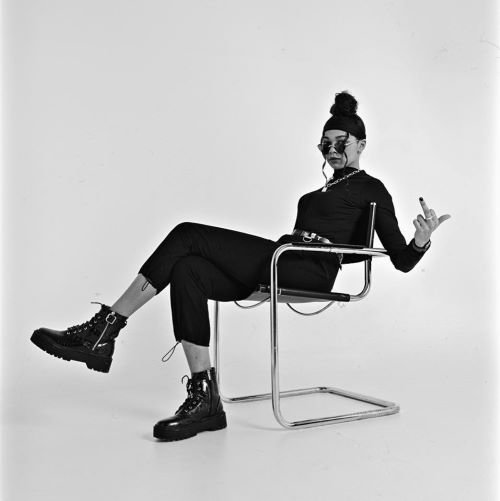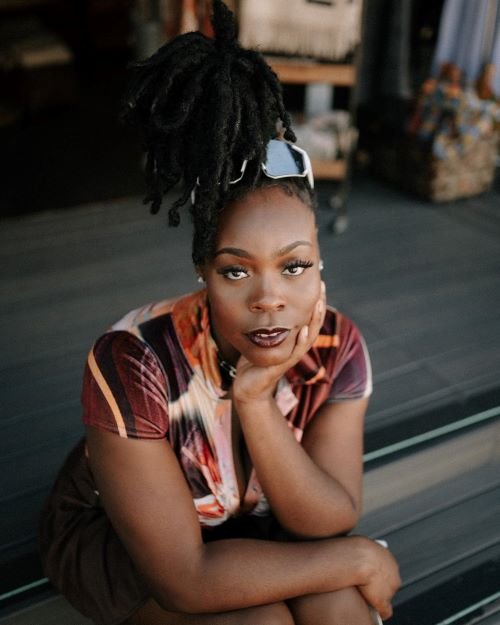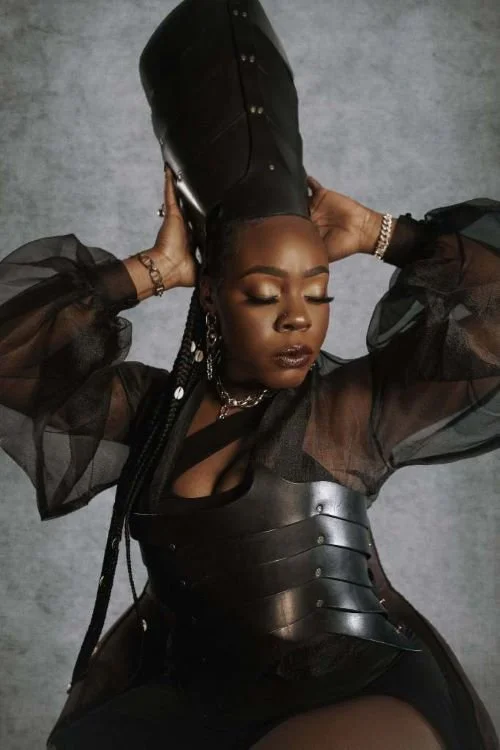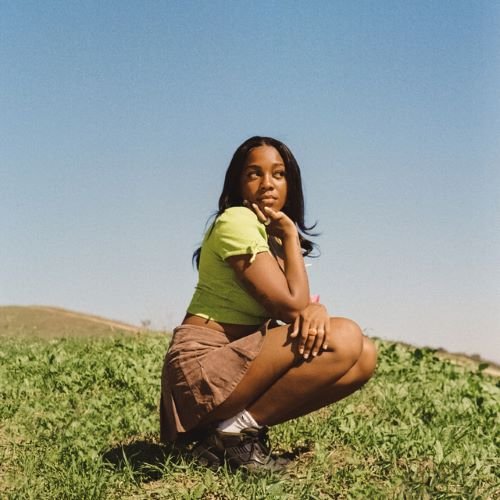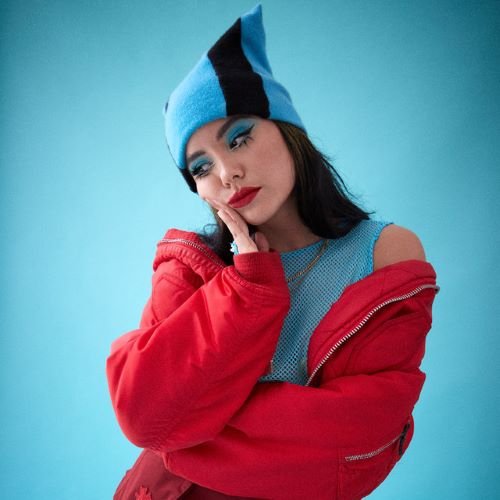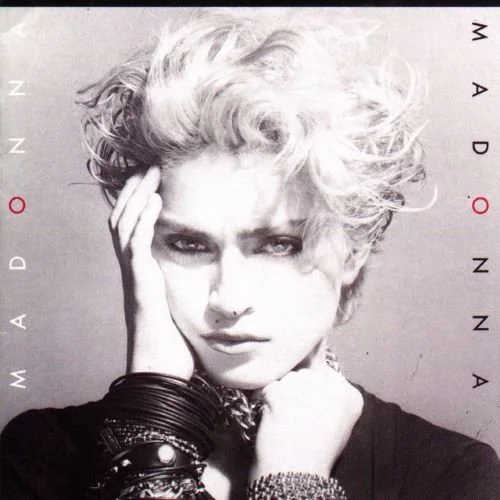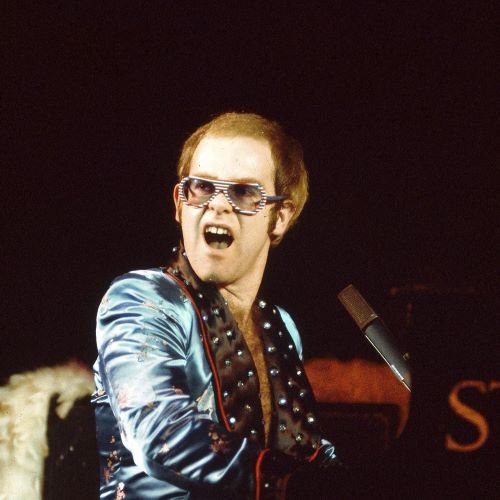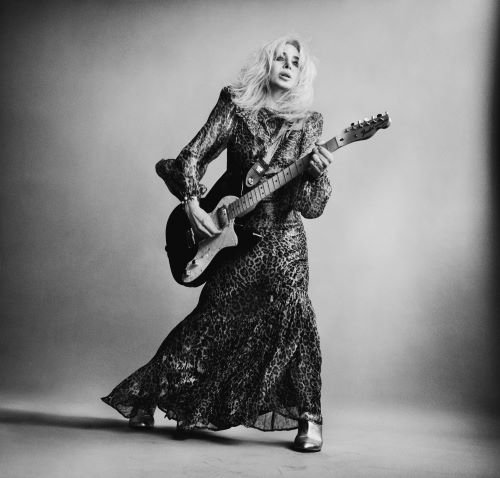FEATURE:
Spotlight
PHOTO CREDIT: Morgan Eve Russell for METAL
flowerovlove
_________
THIS sensational artist from London…
PHOTO CREDIT: Eva Pentel for DIY
(with heritage in Côté d'Ivoire) is one of the most impressive I have heard in years! Still in her teens, flowerovlove (Joyce Cisse) is already one of this country’s most promising and fascinating artists. Her E.P., A Mosh Pit in the Clouds, was released in November. It is a phenomenal work that you really do need to listen to. I want to get to some interviews with the amazing flowerovlove. This interview is from 2021. It was published around the time of the release of the E.P., Think Flower. It was fascinating reading when flowerovlove (Cisse) first discovered music:
“AMS: Congratulations on finishing! What’s your earliest memory of making music?
JC: It was probably songwriting, I remember – well I still have it – but there’s this book that I think my aunt gave to me as she has lots of spare notebooks from where she works in an office. I would open it randomly and start writing totally spontaneous thoughts. Oh actually, I remember there was this one song I wrote when I was about 10 and I would practice it in the garden and the chorus was literally me screaming the entire time. These songs were never completed but it was what first drew me into written words.
Ever since I was like six, I've always said the classic “I wouldn't be a popstar” line because at that age it’s still something of a pipe dream. But as I grew up I realised I was serious about that. When it comes to careers, schools only tend to focus on a singular academic route. Yet nothing else comes to my mind that would make me happy and make me continue to be happy apart from making music. I’m really just following my heart.
AMS: If somebody couldn’t hear your songs, how would you describe them?
JC: I would say Flowerovlove-y. It’s just me! The message I want to convey is just to love yourself, that you are powerful and you are the one capable to do that.
AMS: Where did your stage name actually come from?
JC: Well, it's not something that came about as a username, even though I’m known for it on Instagram. Rather, it meant something on a sentimental level for a long time; the idea actually started off as “flower garden” around 2005 but I just decided that, no, it wasn’t hitting for me. As I started to gain friends on social media, mainly around last year, it just felt right to change it back. But it had a more direct meaning this time: flower represents women and growth as people together, and then the love part – that represents giving love to everyone.
AMS: I can tell you have poured this passion into your latest EP Think Flower. Do you have a favourite song on there?
JC: I would say it’s definitely Dancing in the Rain because its whole process, the making of it, was super fun. It actually started from this jokey melody from another track [proceeds to sing] and then I wrote on my phone these lyrics that arose in my head: it’s me and the rain, kiss me in the rain. I thought it was all too high-pitched but my brother told me – no, this is actually FIRE. To the point where it could be another song entirely. So that same night he made me a beat, and then I just redesigned it a little, so it’s not about kissing in the rain anymore, because dancing is way more me.
AMS: From rain to flowers, nature is a running theme through your work. Why do you gravitate towards this?
JC: I'm absolutely obsessed with nature! To me, being outside is so amazing, there’s just something about it that is wonderfully freeing. Outside I can make my own rules to make my day so much better amongst trees and plants and the air. I also meditate and do yoga so that’s where it comes in – I was there before it gained mainstream traction.
AMS: So is the outside world your happy place when writing?
JC: Strangely enough the only song that's been written outside, that’s released, is On My Way. You’ll never have guessed – I was literally on my way to somewhere, it’s as simple as that [laughs] but yeah songwriting is more a bedroom thing for me I’d say. Come to think of it, I journal outside sometimes.
AMS: I’m giving you power to change the world, but you only have a minute to decide. What are you doing?
JC: First and foremost, world peace – in every single place, it’s something I strongly advocate for. And for everyone to feel love; both loving themselves and having someone or something to love. Oh and I’d also cancel winter, it’s so miserable and cold! I would make all trees permanently evergreen too.
AMS: Finally, what’s next for Flowerovlove?
JC: Being a worldwide popstar! Global domination! But I would still like to leave the house by myself. I love my fans, and the fact these people take precious time out of their day to support me, I can’t wait to get on the stage this year”.
Last year, aged sixteen, flowerovlove was interviewed by The Line of Best Fit. The South London-born artist makes music that has the haze and pull of nostalgia. That said, there is this self-belief and personal touch that makes her songs so incredible powerful and enduring. I am relatively fresh to her music, but I have been so engrossed by it and everything about her. I know that this year is going to be a truly massive one for flowerovlove:
“Cisse is drawn to music that evokes nostalgia. She likes to spend time alone, closing her eyes and letting vignettes of years gone by pass before her: water fights, running around fields with her brother; pitching a tent with her friends to camp out in the garden; the particular smell of her mother’s homemade Ivorian dishes that bring back memories of being gathered around the table with her family. “Those moments are so cool because I didn’t have as much as what I have now. Nostalgia is my favourite feeling in the world, and I want to create that feeling for other people,” she tells me.
I raise the idea that nostalgia might seem sweet, at first, but always leaves something bitter to taste. “I hear that,” she nods, “because there’s always something missing. But it’s not that I’m missing it as much as I’m still enjoying it. I do think it’s bittersweet, and can sometimes feel empty, but it’s a good feeling. It’s delicious.
It's a sentiment that Cisse echoes when she contemplates the incredible creative success she has found as an artist and model when all she should’ve been concerned about was sitting her GCSE exams. “Well, it’s like, when you’re not somewhere, you want to be somewhere else,” she shrugs.
She does admit, however, that it’s quite strange, blurring the lines between youth and the lack of responsibility it affords, while already being tethered to the expectations that accompany an already-thriving career. “Imagine walking into school, and people are like, ‘I don’t expect someone like you to be here because you already have your whole life together’”. She quips, “I’m just like, ‘I’m only here because I legally have to.’ But I do enjoy school, as well. It’s a bit of a weird dynamic, because you’re supposed to have this childhood, but then you’re also already doing what you’re supposed to be here learning how to do. You’re meant to learn how to get a job, but I already have that. I’m already doing what I want to do, so it’s almost like I’m in the past and the future, two alternate universes.
Does she feel that she’s growing up too fast, hurtling towards adulthood at an almost whiplash-inducing speed? “Sometimes, I feel like a 30-year-old woman,” Cisse admits. “I need to have everything figured out. But then when I’m around people my own age, I know that’s still a part of me, too, and I can still do whatever I want. I tend to be around people who are way older than me, but I realised no one actually knows what they’re doing in the creative industries. Everyone’s still figuring it out, making it seem like they know what they’re doing. That’s actually how it works, to be honest.”
More than the music, Cisse learned to love herself by simply spending time alone. “When you’re with people, you always feel a certain pressure. When I’m by myself, I only have to worry about whether I’m having a good time. I don’t need to think about anyone else. Through quarantine, I started to realise, ‘Wow, I’m actually so cool’. I loved it, like wow…” she shares. “It takes a while, but you have to fake it ‘til you make it. No one else can make you happy because people don’t make you happy – you make yourself happy. You can’t rely on people for your own enjoyment or your happiness. That’s down to you”.
METAL highlighted an amazing artist who is inspired a lot by older sounds. I think her heart lies in the ‘80s but, when you think of her ideals (nature, spreading love etc.), they might be rooted in the ‘60s. The amazing flowerovlove champions self-love and womanhood through her songs. This is someone that we need to embrace and encourage as much as possible to ensure that she has a very long and productive career. I think that flowerovlove is among the finest young artists the country has produced in many years. International acclaim cannot be too far away you imagine:
“Is it true that you only work with women and have an all women team? It must feel so rewarding to raise up other female creators and producers with similar mindsets to yourself through your work!
To an extent as much as I can I’ll have as many women as possible!
How does it feel to be releasing music at the age of 16?
It feels really good to be able to live my dreams.
Who is the ideal audience for your mellow music that promotes growth and reflection?
Gen- z! My peeps.
Your first EP Think Flower was cited as a mix of hazy psychedelic soul, and featured the track Malibu, which was one of your first big successes. This song has more of a lo-fi trap or rap influence than the rest of your music – what inspired this? Is it a reflection of your roots writing music for yourself as a child being rap?
I’ll forever and always have a love for rap. An indescribable one. I grew up in areas of London you’d usually avoid!
While we’re talking about school, I saw you express in a previous interview your views that the academic system only promotes one route to success, and usually this isn’t leaving school to become a full-time musician. You have really seemed to find your passion and your place through music, however! Do you think you’ll continue with schooling or take the leap to music full-time?
I’ll continue with school for a while because I still want a glimpse of childhood.
You released your music video for Will We Ever Get This Right today and it is the perfect sequel to the vibes of I Love This Song, dipping into dream pop, meandering through London. What is this upcoming song about?
Oh well this one is different it’s about being obsessed with a person but just the idea of them so they live in your daydreams”.
I am going to move on to an interview from gal-dem. Among those very eager to know more about this future icon, it is amazing to think that they were speaking with someone who was poised for world domination…though she had to finish school first! I can imagine Joyce Cisse will want to take up some further education, though her music as flowerovlove is taking off so much, it might be a difficult choice! With her fanbase exploding and all this attention coming her way, maybe she will want to concentrate music. I have selected a couple of sections from this interview. One portion relates to online trolls and how she deals with them:
“Like many of her Gen Z peers, she’s active on Instagram and TikTok, but she’s resilient to trolls, “I get hate comments but I find it funny,” she shrugs. “I am really secure in myself to know that it’s not personal.” I point out the love she receives on her platforms far outweighs the hate. “Oh yeah, 100%, that’s why [the hate] doesn’t mean anything.”
She’s not one to dwell on the negatives. Late summer single ‘Get With You’ is about “getting with your higher self”, a two-minute fuzzy, heartwarming ride centred around a simple chorus: hey hi, I think I really like you, hey hi, it would be really nice to get with you. The video follows Cisse travelling from London to LA to pursue her dreams. In a promo statement, she said: “The ‘Get With You’ visual is a metaphor for…chasing after the person you want to be, your dreams and your goals.”
Most of her songs embrace positivity and hope – an energy she brings to her live shows, too. At London’s Kentish Town Forum, she signs love hearts to the audience between songs, hands out posters, brings a teenage fan on stage and gets the crowd to shower them with compliments. It’s a refreshing counterweight to the toxic mess of the world we live in, and I ask her how she manages to stay so upbeat.
“That’s a great question, but I’d say it’s genuinely from making the choice to,” she replies. “I always wanna feel good, so I always make the choice to surround myself with as much love and positivity as possible. If I’m not in the space where I’m getting that I will remove myself.”
flowerovlove will now slow down as Cisse goes back to school, but she confides she will skip class “just for the important days”. She doesn’t know exactly how the rest of the school year will go – “I’ll have to figure it out when I go back.” A new single ‘I Gotta I Gotta’, is coming out this week, and some more tour dates are scheduled throughout autumn. Either way, Cisse’s been repeatedly touted as the next global superstar, and it’s a title she’s ready to assume”.
There is one more interview that I want to come to. DIY. They have their Class of 2023. These are the artists they think will be the ones to watch this year. Unsurprisingly, flowerovlove is among those they have inducted. I think that she is someone that is impossible to dislike or ignore. Her music welcomes everyone in. Such an intoxicating and magnificent sound, there is every reason to suggest she will be making music for decades to come. I feel she was born to have this very long and huge career. The future is looking for very bright for her:
“Her early singles embraced that easy, breezy, summer-ready feeling - emboldened by the flower imagery that she’d adopted in her artist name. By the time debut EP ‘Think Flower’ arrived last year, she’d carved out a path soaked with nostalgia-laced, woozy pop gems, and this year’s follow-up ‘A Mosh Pit In The Clouds’ saw her further build on that vibe, creating a refreshing and warm project that feels both timeless and wonderfully modern. “I just make music for how I feel at the time,” she explains. “As long as it makes sense, your music doesn’t have to sound completely different because I don’t like that, it just feels forced. But it can sound like you in so many ways, and my music sounds like me.”
While many of us likely had no clue who we were at 17, Joyce is certain of her identity and armed with the creative vision to prove it (“I’m not going to change who I am,” she states on recent track ‘All The Same’). Carrying herself with the kind of confidence that many spend years cultivating, her young age has obviously been a talking point for many, but it doesn’t bother her. “I think it does help me remember that I’m young, because I do feel like I’m 30 sometimes,” she explains. “I think I’ve always felt a little bit older mentally. I feel like I’m 20 years more mature than a regular 17 year old.”
Yet, youth still oozes into her music. Adolescent crushes manifest in this year’s pure-pop single ‘Will We Ever Get This Right’, while ‘Out For The Weekend’ is an ode to getting dressed up with your best pals. ‘Hannah Montana’, meanwhile, sees Joyce pay tribute to the titular teen icon. Even outside of her music, she’s hooked into the digital world, filming TikToks of her airdropping tracks to fans or promising people in Trafalgar Square that she’ll give them £10 to pre-save her music.
“When I was younger, I always pictured it like you had to be signed to release music, and if you were signed you were definitely going to be famous,” she says. “Now, it’s actually a lot more work. There’s more stages to it, and a lot of it you do yourself. You have to be on it! If more people are online, YOU have to be online.
It could wind up a tricky situation to navigate, especially for someone still growing up, but Joyce’s 30-year-old inner voice has made sure that she balances her online and private life. “I don’t like people to know too much about me,” she explains. “I have boundaries about what I show people. You catch my personality, but you don’t know anything about me. But, if you want to be a global superstar, people are going to find out stuff, so I’ve just gotta get ready.
“For me, it’s about the people,” she continues. “My goal is always to reach people, and numbers on a screen are always numbers on a screen, but when people recognise you in real life, it feels real”.
I shall wrap up now. The wonderful flowerovlove is a very bright and brilliant artist that has been in the industry for a couple of years or so, but she has made such big strides already! If you need a lift at the moment, I can thoroughly recommend the music of flowerovlove. She is creating sounds that, instantly, lodger themselves…
IN your heart.
____________
Spotlight flowerovlove
PHOTO CREDIT: Morgann Eve Russell for CHECK-OUT
Instagram:
https://www.instagram.com/flowerovlove/
Twitter:
https://twitter.com/flowerovlove
Spotify:
https://open.spotify.com/artist/1JspXUvEv3D9ddMeLNqYWj
YouTube:
https://www.youtube.com/channel/UCBc4_7tN6xY4S6Zj9JW0OCg
Facebook:




